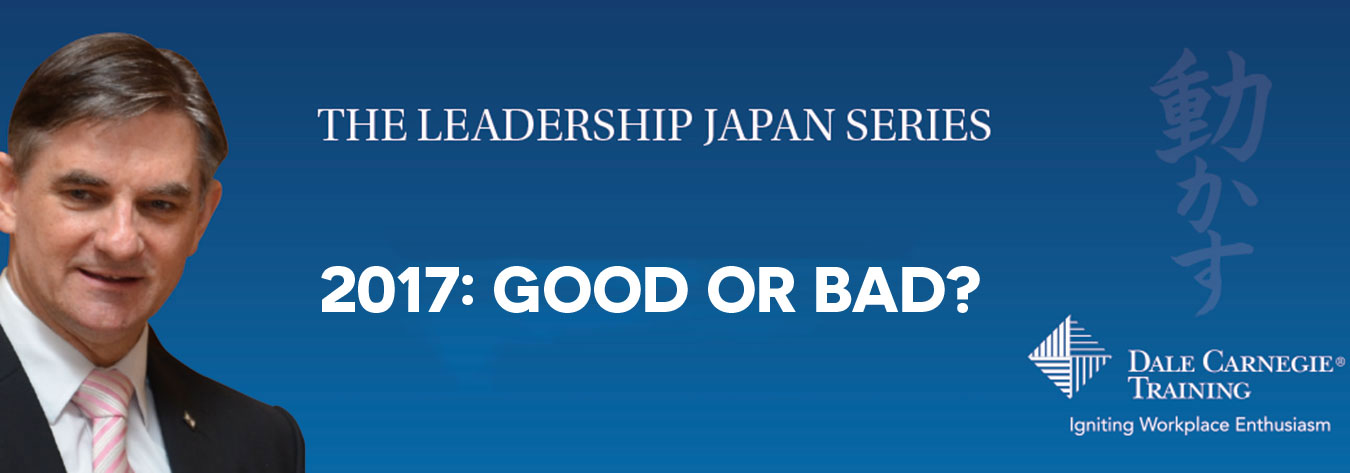There are many starts to a year. Some are based on financial years, zodiacs and calendar years. Generally speaking though, 1 January signals a new start and we are reconnected with our better selves. Those extra kilos we need to shed, getting down to the gym more regularly, eating more healthily, drinking less booze and all the other typical personal and work aspirations we embrace for a better year to come are commonplace goals. All excellent stuff and hopefully this time we will carry through on our brilliant starts.
How about setting a serious goal though? Why don’t we make a commitment to stop complaining in 2017?
This means a total overhaul of our brain. We have a lot of concerns, stresses and worries in our daily lives, so complaining comes very naturally. It doesn’t take us anywhere though. We just focus on something that is either already done and irretrievable, or we express some concern over something that might happen in the future.
Well it might not happen. Perhaps we can take some steps and make sure it doesn’t happen and, if it does, can we lessen the impact? Just complaining about it is basically pointless.
Why don’t we resolve to make 2017 a “complaint-free zone”. This means we have to rethink how we see the world around us. We have to have fresh eyes for old problems. We have to move from having our usual “pity parties” to being proactive.
When we decide we won’t complain, we are taking on more accountability. We are saying we are in the fixing, not dithering, business. We have to switch our language from negative to positive. We need to embrace the mantra of IWWCW, or “In what way can we”, and deal with whatever is causing us grief and hardship.
If we take away the chance to find refuge in the act of complaining, then we need to mentally move to a new place—a land of the possible and the positive. Now this obviously requires discipline, because we are all whiners at some point.
This perspective shift has two dimensions. One is internal—our self-talk about what is happening in our own world. The second is related to our dealings with others. We often get frustrated with other people and we complain to them and/or about them. This does no good whatsoever. The individuals in question often become defensive, usually reject what we say and sometimes even feel required to counterattack or seek revenge at a later point.
This perspective shift has two dimensions. One is internal—our self-talk about what is happening in our own world. The second is related to our dealings with others. We often get frustrated with other people and we complain to them and/or about them. This does no good whatsoever. The individuals in question often become defensive, usually reject what we say and sometimes even feel required to counterattack or seek revenge at a later point.
Instead, allowing others to keep face, being tactful, indirect, subtle and talking about our own failings first are all tried and true methods of dealing with the insufficiencies of others. If we fix our self-talk and shift to the positive, we will have a much better 2017. If we stop complaining about others, we will have a spectacular new year.
None of this is easy, but the rewards are definitely there. Are we all perfect and can just switch out of old habits with a mere snap of the fingers? No, so let’s not beat ourselves up if we occasionally slip up. Rather, let’s keep working on establishing new habits that will work for us. Each time we truncate our negative self-talk or refrain from giving some irritating transgressor both barrels, we have made progress. It takes 21–30 days to cast a new habit, so we have to be patient and just keep going with it.
Imagine how life would be if we were able to eliminate complaining from our lives? A worthy goal for sure. Best wishes for your success in making this a reality.
Engaged employees are self-motivated. The self-motivated are inspired. Inspired staff grow your business, but are you inspiring them? We teach leaders and organisations how to inspire their people. Want to know how we do that? Contact me at greg.story@dalecarnegie.com







